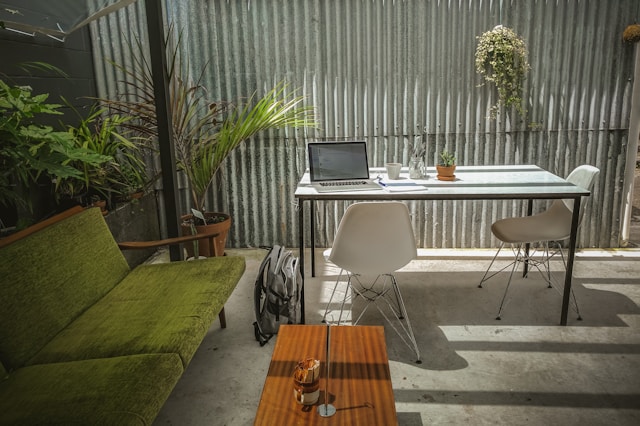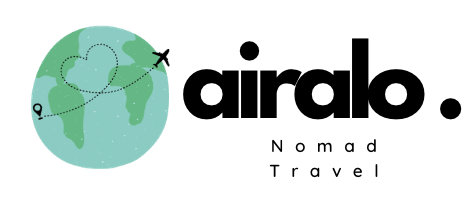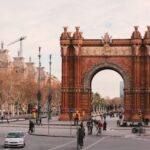
Kuala Lumpur, the capital of Malaysia, has attracted many digital nomads due to its climate and tax-friendly environment. This article shares insights on the city’s tax advantages and overall living experience. Recently, Kuala Lumpur was ranked as the third most livable city in Asia and the eighth globally, a ranking based on the experiences of expatriates living overseas, rather than economic theories. This article explores the pros and cons of living in Kuala Lumpur, particularly from a tax-friendly perspective.
Kuala Lumpur offers several key advantages for digital nomads:
Tax-Friendly Environment:
Kuala Lumpur, located in Malaysia, attracts many digital nomads due to its tax-friendly environment. Malaysia operates on a territorial tax system, taxing only income earned within the country, such as rent or salaries. Foreign income is not taxed. This means that if you earn income abroad, Malaysia does not tax it. This is a significant advantage for most digital nomads, as it allows you to enjoy a low tax burden while living in Malaysia. Even if you work full-time in Kuala Lumpur, you can still benefit from this tax-friendly environment. It’s also worth noting that if you have an offshore company or register a company in Malaysia’s tax haven, Labuan, your tax burden can be almost zero.
Let’s look at Kuala Lumpur as discussed in Nomad Capitalist’s video “Pros and Cons of Living in Kuala Lumpur“:
“For a nomadic capitalist, the first thing to know is that Malaysia is a tax-friendly country. Malaysia operates on a territorial tax system; it only taxes income earned within the country, whether it’s rental income, salaries, or otherwise. The tax rates are reasonable; they’re neither particularly low nor particularly high. Income earned abroad is not taxed. However, you need to consider the impact if you work full-time locally. There may be a way to view yourself as an employee rather than a profit-making business owner. But if you have an offshore company, including one registered in Labuan, Malaysia’s tax haven, you can basically pay little to no tax here. Therefore, Malaysia wants you to contribute to their economy. They want you to shop in their stores, eat in their restaurants, and buy property in their country. But their approach is: make money here, pay tax; make money elsewhere, no tax. There has been talk of changing this tax system, but it has been postponed. From what I’ve heard, this might be indefinitely postponed, but overall, Malaysia is a tax-friendly country to begin with.”
Climate and Living Conditions:
Kuala Lumpur’s climate is warm and humid year-round. While the high humidity might be uncomfortable for some, the stable climate allows you to enjoy pleasant weather throughout the year. Rainfall is mostly concentrated in the late afternoon, making it relatively easy to plan daily activities. Despite the humidity, there is plenty of sunshine, and wearing light clothing is the norm. Overall, the climate is a plus for digital nomads.
Let’s look at Kuala Lumpur as discussed in Nomad Capitalist’s video “Pros and Cons of Living in Kuala Lumpur“:
“Obviously, another advantage is the warm weather. For some people, it might be a bit hot, so I’ll give both pros and cons. The humidity is high, but I like Kuala Lumpur’s humidity because it’s relatively predictable. While not entirely, it’s relatively predictable. During some rainy seasons, you know it’ll rain heavily around 5 PM every day, and you can plan your activities around that. You know there’s warm weather year-round. So I’m here during the winter, I’ll be here in September for the Nomad Capitalist Live event, but the weather is always pleasant. I don’t mind walking around in the humidity. The sun is shining. So for me, yes, you might get a bit sticky, but frankly, sometimes you’ll see me wearing a long-sleeve shirt, pants, and sometimes even a jacket. I think it’s fine to do so there, and it’s comfortable. Let me tell you: it’s better than zero-degree winters.”
Cost of Living:
The cost of living in Kuala Lumpur is very affordable. For digital nomads, low living costs are an important consideration. In Kuala Lumpur, you can rent a three-bedroom apartment in the city center for less than $1,000 per month. Even if you decide to buy property, prices in Kuala Lumpur are much lower than in many other Asian cities, such as Singapore, Bangkok, or Manila. For $500,000, you can get much more property in the city center than elsewhere. Therefore, from a cost-of-living perspective, Kuala Lumpur is very friendly to digital nomads.
Let’s look at Kuala Lumpur as discussed in Nomad Capitalist’s video “Pros and Cons of Living in Kuala Lumpur“:
“Another advantage is the extreme affordability. Now, I understand that if you’re a successful nomadic capitalist, your top priority might not be affordability, but it’s still enjoyable to have a great lunch. If you go to the street food market below the Four Seasons Hotel, you can have a hearty lunch for $2 to $3. And the satisfying thing is, no matter how successful you are, it’s still fulfilling. If you want to go to Marini’s on 57 and enjoy caviar and champagne, you can do that too. So, there’s a lot of spending convenience, but it’s an extremely affordable place. I’ve always thought that some of our remote workers should get a digital nomad visa. If you earn $2,000 a month, you can get a visa; they should go to Malaysia. I mean, for less than $1,000 in rent, you can rent a three-bedroom apartment with a pool and amenities in a good location in the city. As for buying property, if you want to buy, it’s also very affordable. For $500,000, even in the city center, you can get much more than in most places in Asia. So in terms of day-to-day living, it’s very affordable for anyone. If you want to buy property, plant a flag, and diversify some assets into the country, the Malaysian ringgit is at a multi-year low right now. You can get something for $500,000 or even less, and your property there will be much cheaper than in Bangkok, Manila, or obviously Singapore.”
Banking System:
While Kuala Lumpur’s banking system is stable, it may not be as strong as Singapore’s. If you need to open a bank account, Malaysia’s banks operate well, but for global investors, Singapore’s banking services may be more suitable. However, Kuala Lumpur’s banks serve local needs well, especially for those investing or living in Malaysia.
Let’s look at Kuala Lumpur as discussed in Nomad Capitalist’s video “Pros and Cons of Living in Kuala Lumpur“:
“If you need to open a bank account, for example, for MM2H or other residency projects, I’ve heard these banks are well-capitalized. What I’ve read has all been positive. You have some big banks, and some Singapore banks have branches in Malaysia. You also have banks from other countries, but there are also local Malaysian banks that I think operate well. The biggest banks are the result of mergers of some not-so-successful banks, but they didn’t fail, they just merged. So, I’m not saying Malaysia is a global financial hub; if you can open an account in Singapore, that’s where I would run investments. I wouldn’t buy investment products in Malaysia. If you want to buy some Malaysian stocks through your account, go ahead, but for global investments, neighboring Singapore is much better. By the way, here’s another advantage: Singapore banks will better understand why Westerners want to open accounts there. ‘Oh, you live next door in Malaysia, we understand.’ In fact, you’ll hear again at this year’s Nomad Capitalist Live, our Malaysian banks will be there, you can open accounts with them, and you can open accounts in other countries, including Singapore. So sometimes you can use some regional banks to do that.”
Travel Convenience:
Kuala Lumpur’s travel convenience is also a significant advantage. AirAsia is headquartered in Kuala Lumpur and offers affordable flights that cover all of Asia and beyond. You can easily travel to many places in Southeast Asia, and even long-haul flights are relatively cheap. Compared to other low-cost airlines in the region, AirAsia’s service is relatively comfortable and offers decent meals. This way, you can easily travel around Asia, explore new investment opportunities, or visit tourist destinations.
Let’s look at Kuala Lumpur as discussed in Nomad Capitalist’s video “Pros and Cons of Living in Kuala Lumpur”:
“Travel is also convenient. AirAsia’s CEO Tony Fernandes will speak at Nomad Capitalist Live. He has built AirAsia into the largest and arguably the best low-cost airline in the world, headquartered at KLIA2 in Kuala Lumpur. You can fly almost anywhere in Asia. They now also have longer-haul flights, and I believe they even fly to Hawaii. But you can fly to Japan; I think they also fly further, but certainly across Southeast Asia, and it’s very cheap. Compared to many low-cost airlines in the US or Europe, it’s relatively friendly, relatively comfortable, and they’ll give you a nice meal—you only need to pay three dollars to get a really great meal on the plane. So, you can easily go anywhere you want. If you’re like me and want to take Malaysia Airlines or other Asian airlines, it’s very convenient to go to many places in Asia, where more than half of the world’s population lives. You’re very close to seeing all these opportunities. So if you want to explore investments in Bangladesh, Cambodia, Nepal, or just go for tourism, you’re close.”
Culture and Amenities:
Kuala Lumpur’s multicultural environment and amenities offer a rich living experience for digital nomads. The city has many Western and Asian restaurants, stores, and a variety of cultural experiences. At the same time, the city offers modern conveniences such as shopping malls and international schools. This way, digital nomads can enjoy a balanced work-life experience.
Let’s look at Kuala Lumpur as discussed in Nomad Capitalist’s video “Pros and Cons of Living in Kuala Lumpur”:
“Another advantage is the multicultural environment. There are many restaurants, from Western to Asian. If you want to eat Italian food, you can; if you want to eat Indian food, you can. You have access to all the different cultures. This is a true multicultural society, a mix of Chinese, Indian, and local Malay cultures. People generally speak English. So, in this sense, I think you’ll feel very comfortable. And you can go to different shopping malls, where you can buy groceries, international products, or even all the things you might buy at home. Malaysia also has a good infrastructure for international schools. Therefore, if you want to bring your family, there are many choices for international schools in Kuala Lumpur.”
Challenges:
While Kuala Lumpur has many advantages, it also presents some challenges. The local government’s efficiency may not be as high as in other countries, such as Singapore. This means that if you need to interact with the government, you might face some bureaucracy. Additionally, Kuala Lumpur’s public transportation system is not as advanced as in other major cities, so you may need to rely more on private transportation. However, for most digital nomads, these challenges are manageable and don’t overshadow the city’s other advantages.
Let’s look at Kuala Lumpur as discussed in Nomad Capitalist’s video “Pros and Cons of Living in Kuala Lumpur”:
“In terms of disadvantages, the Malaysian government has shown some bureaucratic inefficiencies. For example, I think it was during the pandemic when they announced ‘We’ll let MM2H permit holders back into the country.’ But it was just the other day that someone said to me, ‘I’m still waiting to get back in.’ So, in this sense, I don’t think it’s as efficient as Singapore. And speaking of transportation, while Kuala Lumpur has a decent train system, I think they need to improve. Now, I often take taxis or private cars, and the traffic situation isn’t terrible, but it’s not the best either. For me, it’s not a big problem, but it might be a challenge for some people.”
In conclusion, Kuala Lumpur offers digital nomads many advantages, including a tax-friendly environment, a favorable climate, and a low cost of living. While there are some challenges, such as government efficiency and public transportation, the overall experience is positive for those considering Kuala Lumpur as a base.
This article references the following video sources:
If you have more questions or need assistance with tax-related matters, feel free to leave a message or add our official WeChat account to access a range of professional services, including tax planning, consulting, immigration, and digital nomad assistance





